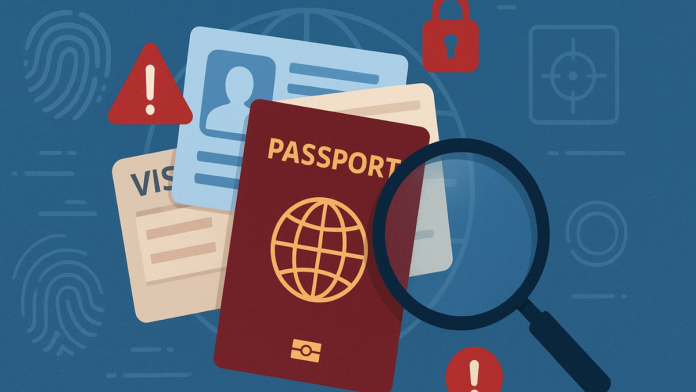The growing desire for global mobility has created a shadow market for passports, visas, and residency permits. Hidden behind polished websites and big promises, “passport mills” operate illegally, selling fake or fraudulently obtained documents. While they attract people looking for shortcuts, these operations expose buyers to risks that affect not just their freedom, but also their finances and personal safety.
What Are Passport Mills?
Passport mills are underground businesses that provide counterfeit travel documents or misuse real ones obtained through fraud. Their methods can include bribing officials, exploiting stolen blank passports, or fabricating paperwork to support false identities.
The services often extend beyond passports. Many mills offer entire sets of documents, such as driver’s licenses and residency cards, creating what looks like a full legal profile. Their advertisements frequently appear on hidden online forums or encrypted apps, where they claim to have government connections or “special channels.”
🇺🇸 Visa trap alert — US embassy warns Indians: “Don’t confuse expiry date with I-94 deadline
People most often targeted include expatriates seeking residency, individuals under pressure to migrate quickly, or those who believe they can hide behind a new nationality. What seems like a solution, however, usually leads to severe consequences.
Legal and Financial Risks
Possessing or using a fraudulent passport is a crime across most jurisdictions. In the United States, 18 U.S.C. § 1543 makes passport forgery punishable by up to 10 years in prison, while Section 57 of Canada’s Criminal Code allows sentences of up to 14 years. In the European Union, similar offenses lead to imprisonment, deportation, and bans on future entry.
Modern border checks make it extremely difficult for counterfeit documents to succeed. Systems such as Interpol’s SLTD (Stolen and Lost Travel Documents) database, biometric facial recognition, fingerprint scanning, and iris scans ensure that suspicious passports are flagged quickly. Even high-quality forgeries fail when compared against stored biometric data or the digital security keys used in e-passports.
🔍 Hidden power shift? China-Argentina relations deepen under cover of visa reform
Victims also face major financial losses. Prices for fake passports range from $10,000 to $100,000, with no guarantee of delivery. In many cases, buyers receive poor-quality forgeries detected the very first time they are used. Because these deals are illegal, victims cannot turn to law enforcement or courts to recover their money.
A further risk lies in identity theft. Passport mills collect sensitive personal details, including photos, signatures, and fingerprints, which are often sold later on black markets for fraud or cybercrime.
Links to Organized Crime and International Crackdowns
Passport mills often form part of wider criminal networks tied to smuggling, money laundering, and fraud. Clients not only lose money but may also find themselves exposed to blackmail. Some operators demand ongoing payments, threatening to reveal the client’s actions to authorities. Others coerce individuals into illegal work, such as transporting money or goods, in exchange for their fraudulent documents.
🌍 America’s welcome gets a price tag — $15K visa bond targets “overstay nations”
Global law enforcement has intensified efforts to dismantle these networks. Interpol and Europol, alongside the International Civil Aviation Organization (ICAO), coordinate operations to track forged documents and their supply chains. Tools such as the European Entry/Exit System (EES) and the ICAO Public Key Directory (PKD) allow border officials to cross-check biometric data and verify the authenticity of passport chips instantly.
Recent investigations have uncovered large-scale operations in different regions, seizing thousands of counterfeit passports intended for clients in North America, Europe, and Asia. Arrests frequently include both the suppliers and the clients, meaning those who purchase fake documents often face charges alongside the criminals who sold them.
The impact extends beyond travel. When fraudulent passports are flagged, the information is often shared with banks and financial regulators. This can result in frozen accounts, blocked transactions, and further probes into possible links with money laundering or tax evasion.
These coordinated crackdowns show that passport mills are not just an individual problem but a serious global security issue, with consequences that can destroy careers, reputations, and futures.


